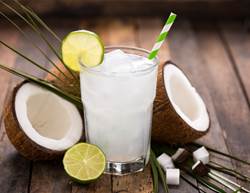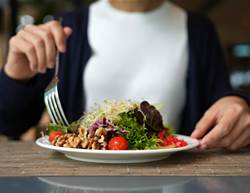It’s not pleasant to talk about, and it’s even less pleasant to deal with, but everyone experiences watery stools (a.k.a. diarrhoea) occasionally. Most bouts of diarrhoea are caused by a virus or bacteria, but certain foods, including dairy, coffee, and anything spicy, can also send you running for the bathroom. And despite feeling embarrassing, it’s a common issue.
If you’ve ever had to run to the toilet after eating, you’ve experienced acute diarrhoea. Although there are a number of possible causes, including malabsorption, intolerances to foods like dairy, and chronic conditions like irritable bowel syndrome (IBS), it’s likely that this type of diarrhoea is caused by food poisoning or a virus, per Health Direct.
Food poisoning is the result of ingesting food or water contaminated with bacteria such as such as clostridium, salmonella, E. coli and campylobacter bacteria. Food poisoning symptoms appear between hours and days after ingesting contaminated food. Illnesses like norovirus and viral gastroenteritis, commonly called the stomach flu, can also cause acute diarrhoea; symptoms can appear between 12 hours and 10 days after exposure to a virus, depending on the strain.
What causes chronic diarrhoea?
Certain food allergies and GI conditions make digestive issues lasting more than a few days more likely. Lactose intolerance, IBS, and celiac disease are three of the most common triggers of chronic diarrhoea, according to Health Direct. When you eat foods that inflame these conditions, like dairy, high-fibre foods, and gluten, it’s likely that your body will respond with diarrhoea.
If you suspect that food, rather than an illness, is causing your diarrhoea, start paying attention to your eating habits. “The best way to investigate which foods are making your symptoms worse is to keep a food diary,” says Dr Shilpa Ravella, gastroenterologist.
To do this, write down everything you eat in a day, including serving sizes and any brand names, alongside the time you eat. Then, note when you have symptoms and see if you can ID any common culprits. When you can finally pinpoint the foods that trigger your tummy troubles, you may be able to spare yourself some discomfort—and a few extra trips to the restroom.
So, which foods are most likely to cause diarrhoea? Ahead, GI doctors share the most common culprits to keep in mind.
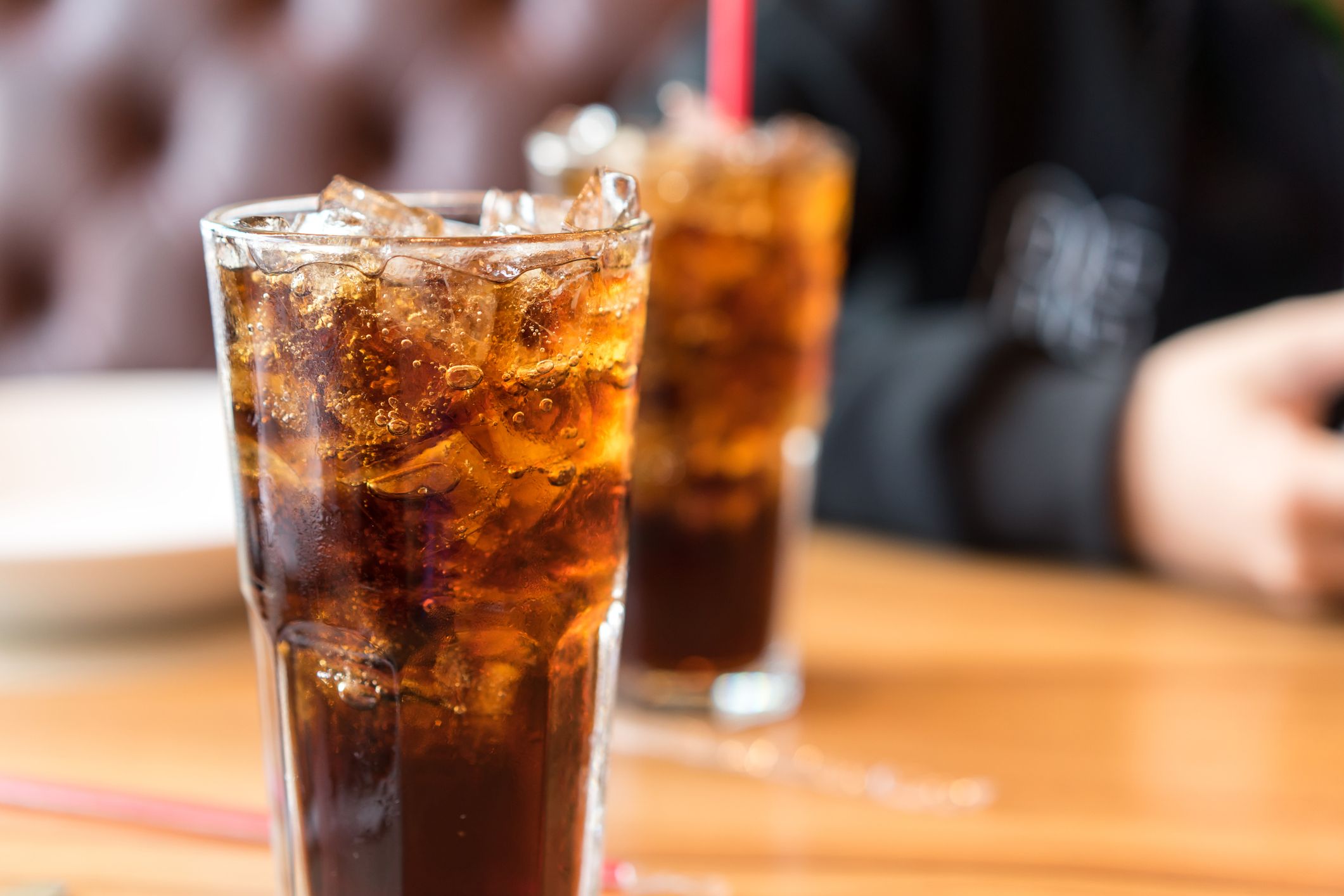



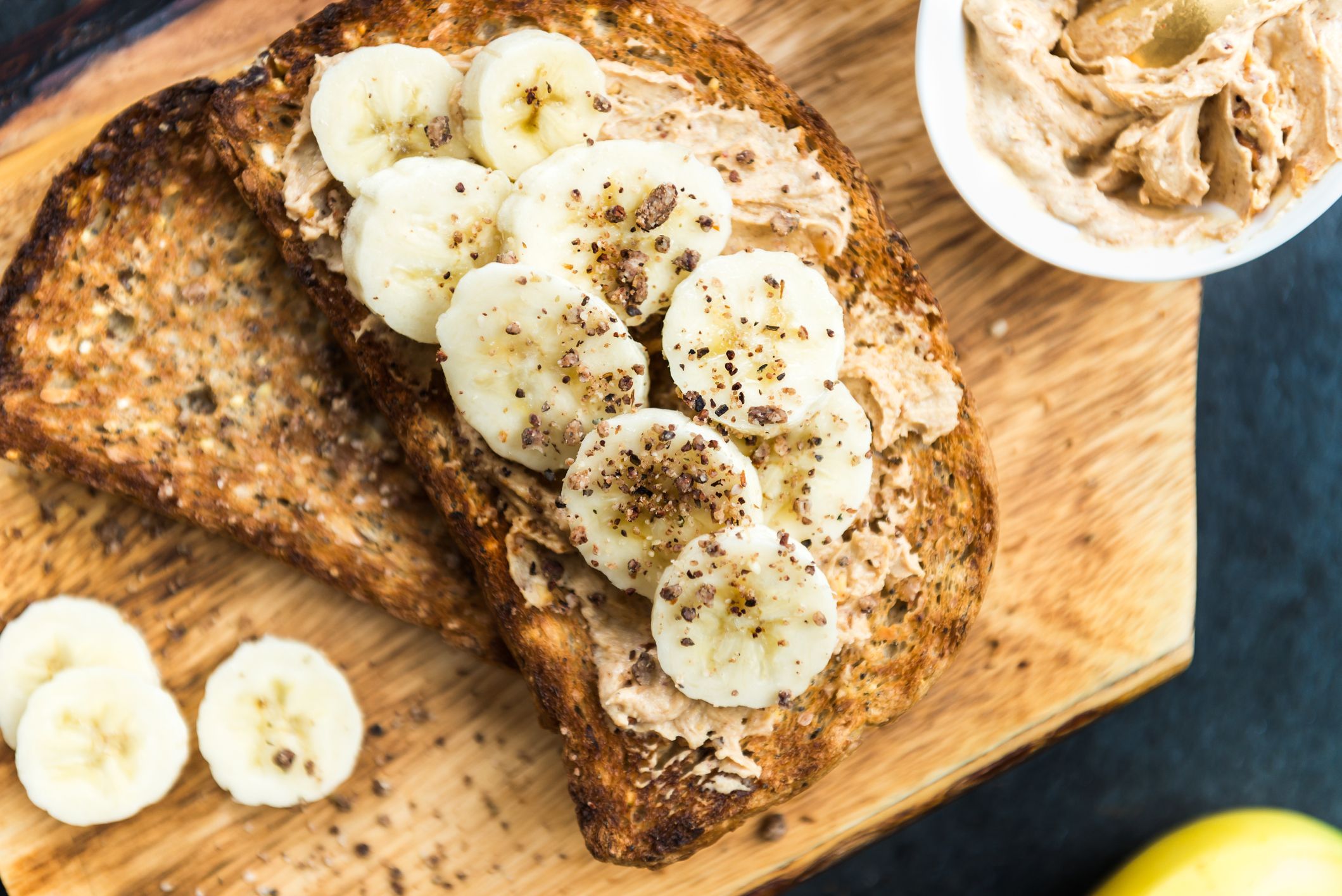
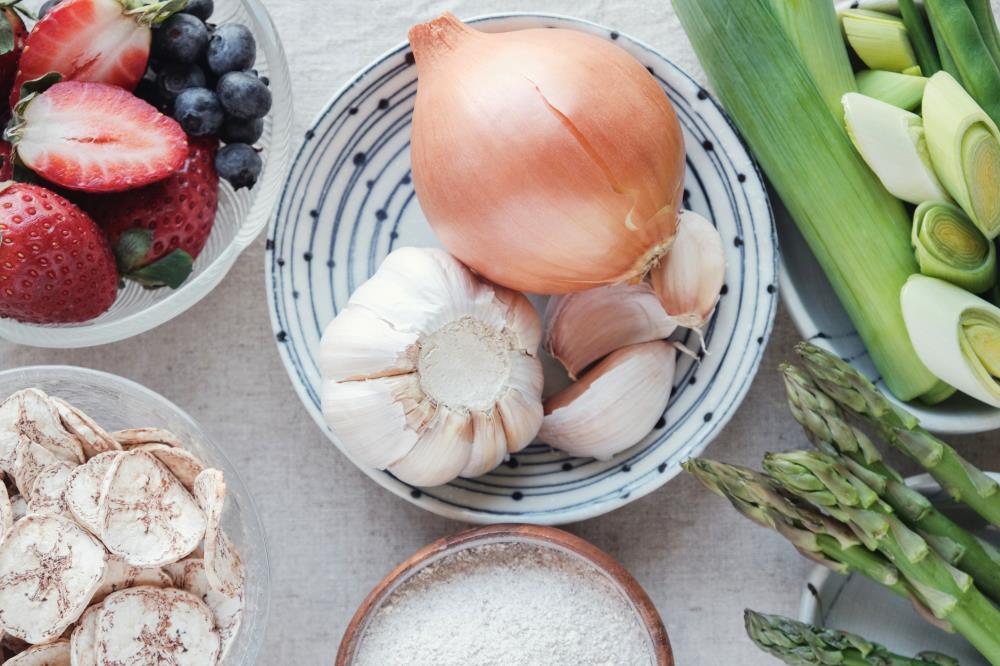
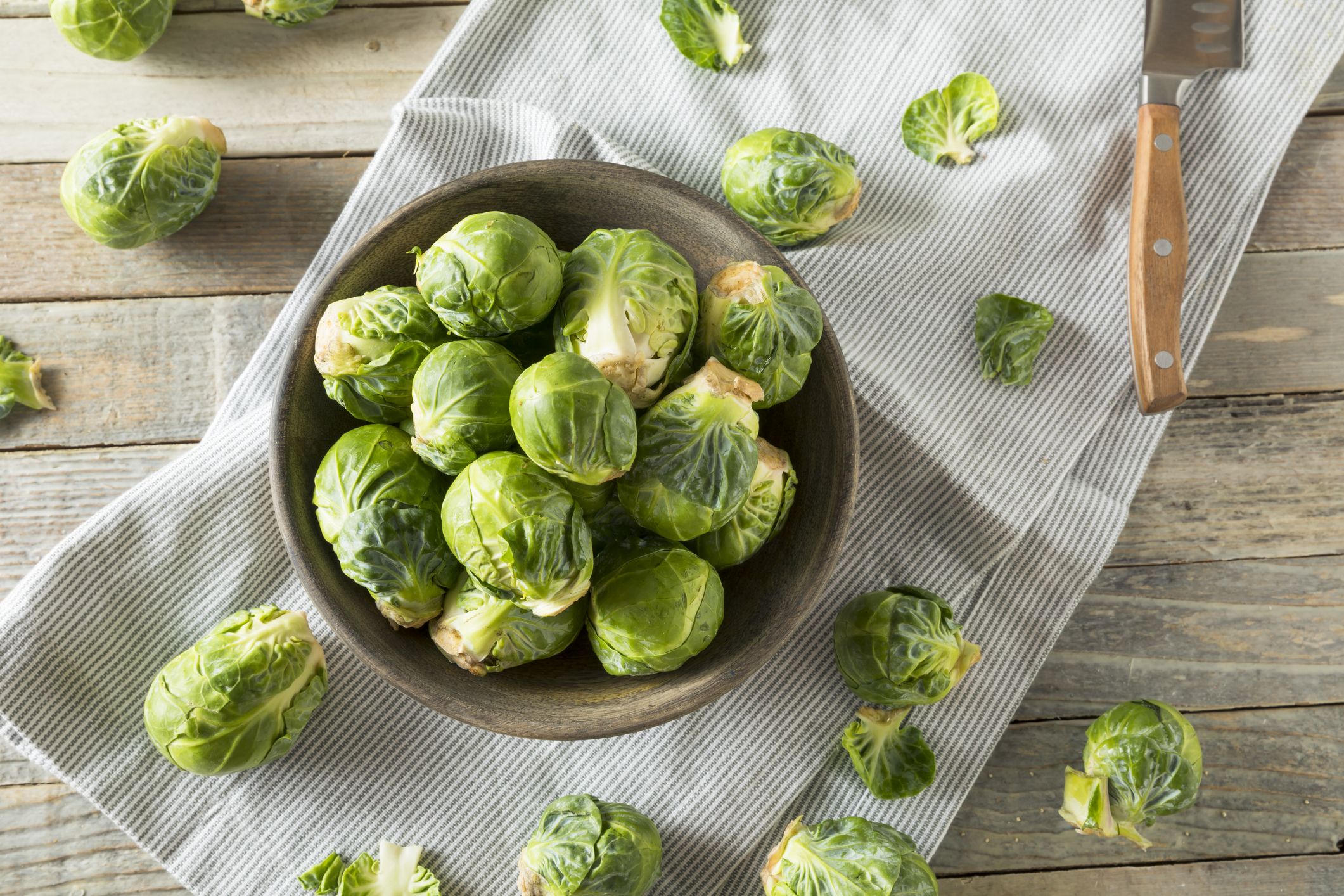
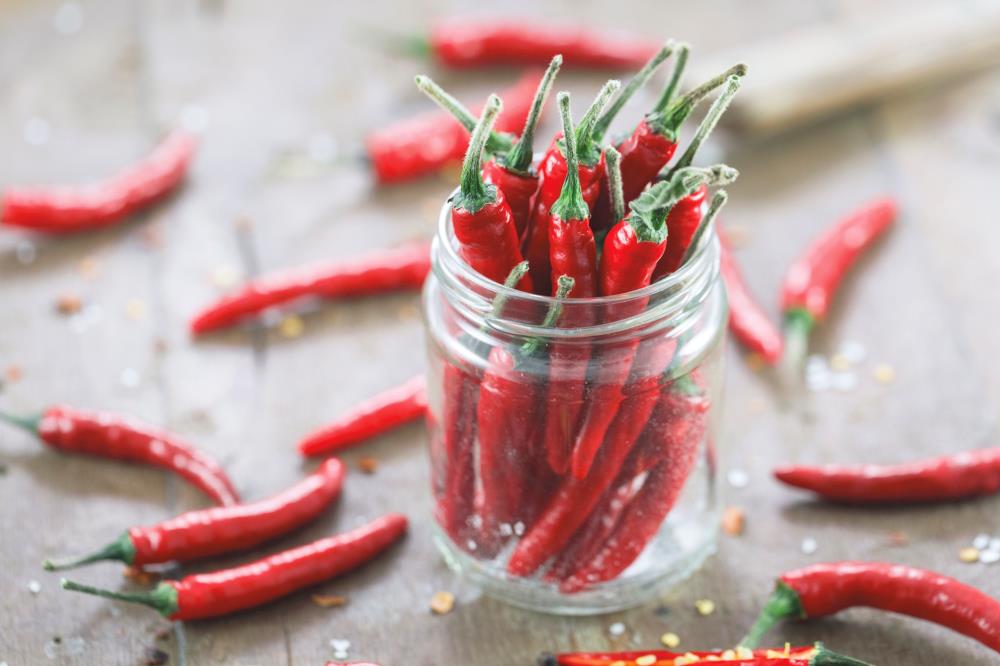
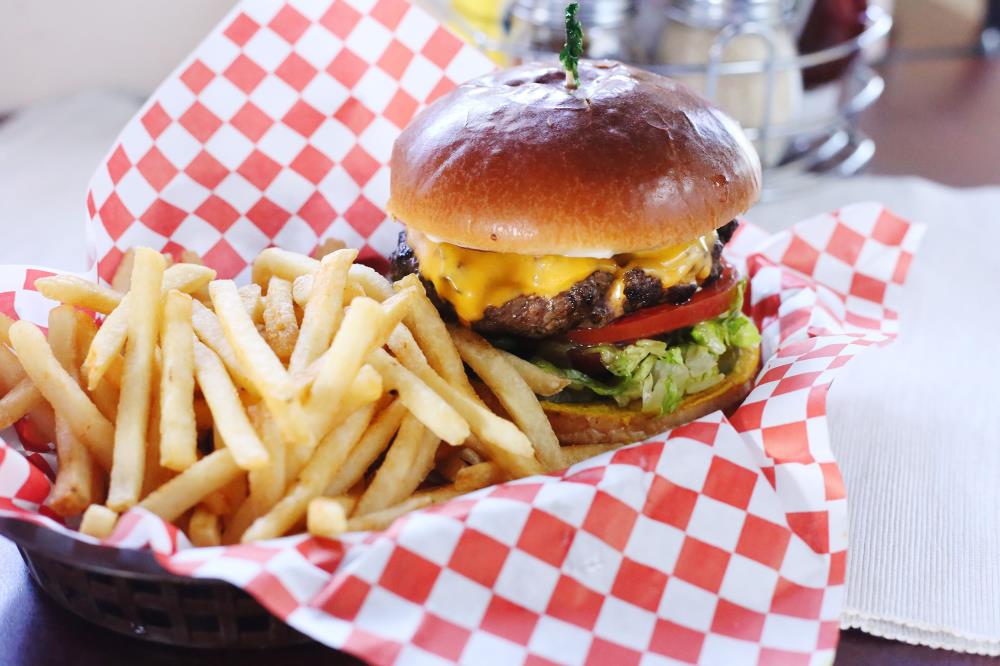
©Getty Images
Sugar Substitutes
Sugar-free snacks and chewing gum may help satisfy your sweet tooth, but many contain sugar substitutes that can also act as a laxative. “Sweeteners such as aspartame, sucralose, and sorbitol can contribute to diarrhoea and bloating based on how your body metabolizes them in the gut,” says Dr Bhavesh Shah.
©Getty Images
Coffee
Is your morning cup promptly followed by a rush to the bathroom? That’s pretty normal. “Coffee can cause diarrhoea in some people,” Dr Ravella says. “The caffeine can stimulate the gut to contract more quickly than it normally does, so food moves through faster and isn’t absorbed as well.” The acidity of coffee can also worsen the symptoms of some digestive disorders, such as acid reflux. Other caffeinated foods and drinks, including tea and energy drinks, could have the same effect.
©Getty Images
Alcohol
If you have a few too many during a night out (or in, these days!), you may wake up with an upset stomach the next morning. “This is often a symptom that accompanies a hangover,” Dr Shah says. “Alcohol is an irritant. Your gut may not agree with drinking a large amount.” Booze also speeds up digestion, which affects your body’s ability to absorb water—hence the liquid stools when you’re hung over.
©Getty Images
Dairy
If your stomach goes rogue when you eat milk, cheese, or yogurt, you may be sensitive to lactose. “Common symptoms, which begin about 30 minutes to two hours after consuming foods containing lactose, may include nausea, cramps, bloating, gas, and diarrhoea,” Dr Shah says.
©Getty Images
Wheat, Rye, and Barley
Gluten—a mix of proteins found in wheat, rye, and barley—can cause diarrhoea and bloating for some people, but the good news is that a true gluten sensitivity is relatively rare. Still, if you feel like wheat may be wreaking havoc on your digestive system, keep a food diary and look for patterns: Are you sick every time you eat bread or pasta? “If you think you have gluten intolerance, it’s important to see a gastroenterologist to make sure you don’t have celiac disease,” Dr Ravella says. For people with this disorder, gluten can do serious damage by causing the body to attack the lining of the small intestine.
©Getty Images
FODMAP Foods
FODMAP stands for fermentable oligosaccharides, disaccharides, and monosaccharides, and polyols. They’re a group of carbs and sugar alcohols that can be tough to digest, especially for people with IBS, Dr Ravella says, leading to gas, bloating, and diarrhea. A low-FODMAP diet may help improve symptoms, but should be monitored by a dietitian, as it requires you to cut out certain foods rich in vital nutrients, including high-fibre fruits and vegetables, dairy, and grains.
©Getty Images
High-Fibre Foods
Fiber gets your digestive system moving, which is a good thing—but sometimes it’s a little too effective, Dr Shah warns. Fiber binds with water, which can help prevent constipation but may also have a laxative effect if you consume too much at once. This is why many people who go vegan experience an upset stomach at first; a lot of produce means a lot of fiber. That’s not to say you shouldn’t load up on fruits and veggies, as they keep your gut healthy, help you maintain a healthy weight, and offer important disease-fighting nutrients. Instead, eat more fiber gradually until your stomach adjusts.
©Getty Images
Spicy Foods
Some people can eat jalapeños like they’re sweets, while others feel their stomach churn at the mere sight of a chili pepper. “Each individual is unique when it comes to tolerating spicy foods,” Dr Ravella says. “Spicy foods can irritate the lining of the stomach and intestines, causing food to move more quickly through the gastrointestinal tract, which results in loose stools.” If you don’t eat spicy food often, she adds, you’re more likely to feel the burn when you do.
©Getty Images
Fast Food
If you need motivation to skip the drive-thru window, consider that greasy takeout grub can be hard on your gut. “In general, all fats can be harder to digest, but the worst culprits are greasy, fried foods typically found at fast food restaurants,” Dr Ravella says. “You’re less likely to have issues when eating healthy fats from whole foods, like avocados.” Greasy fish and chips, on the other hand, don’t really pack any nutritional benefits—so if they bother your belly, just skip them entirely.






